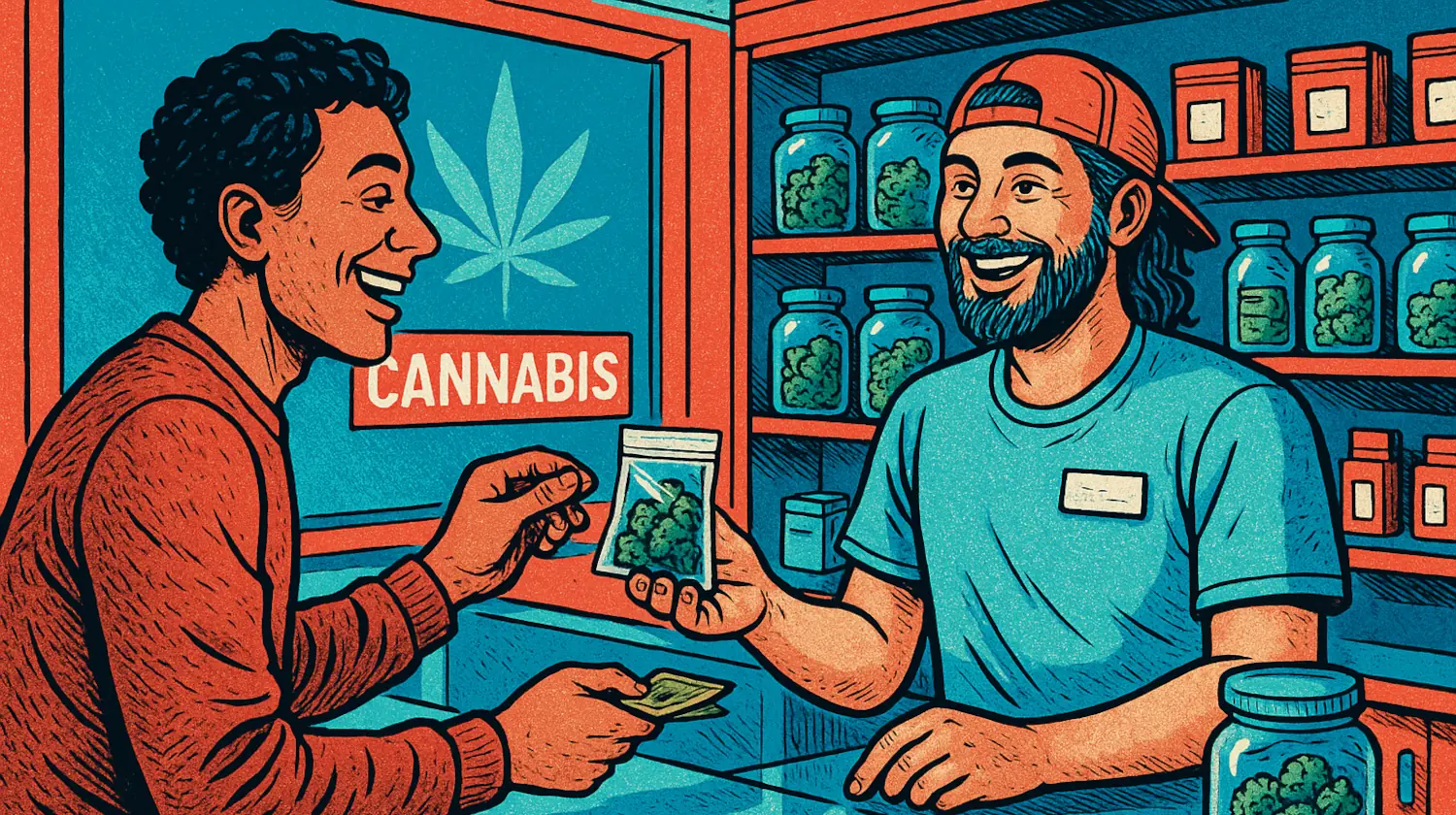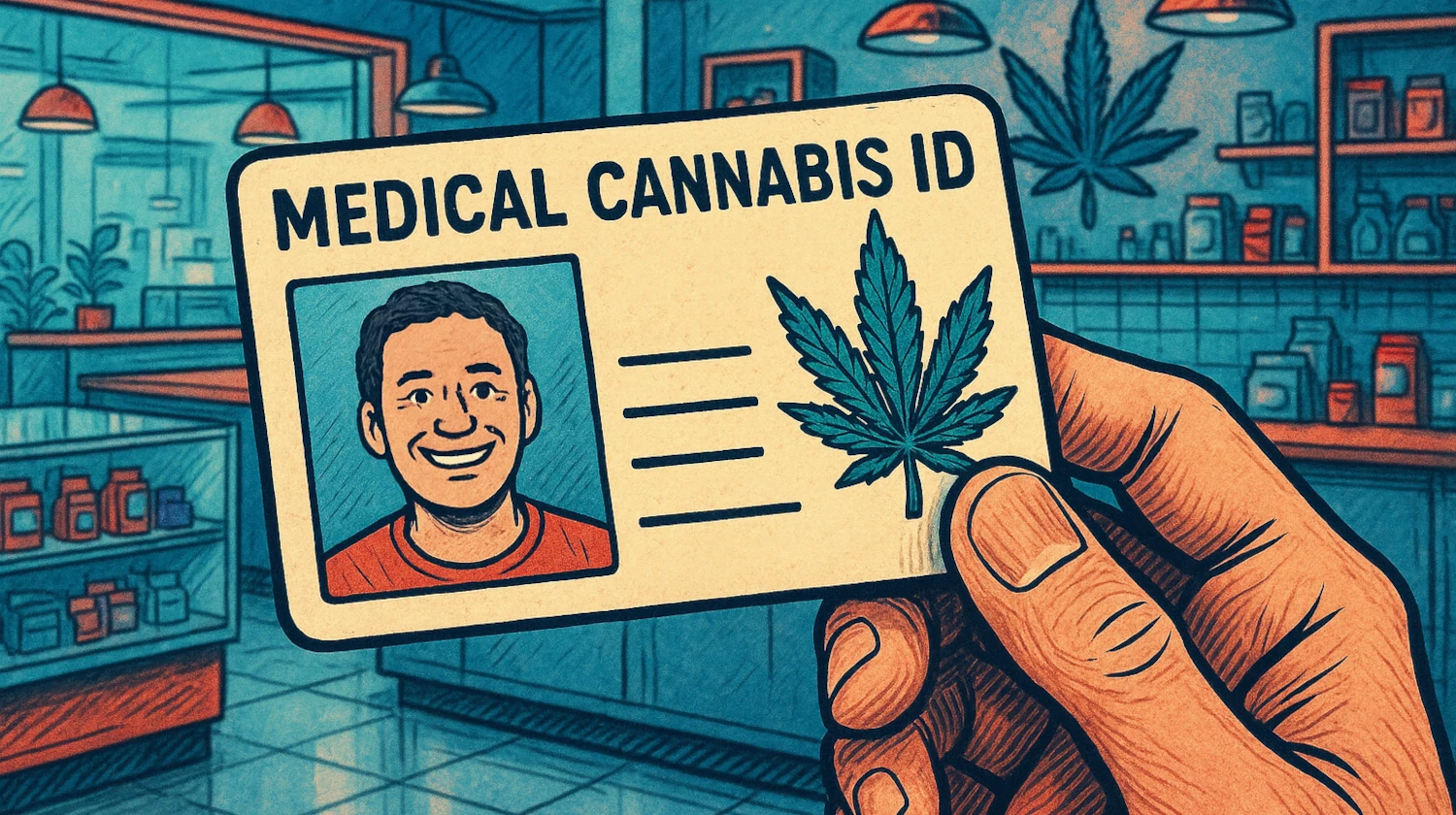Key Takeaways About the Cost of Medical Marijuana
- The price of medical marijuana varies from state-to-state.
- The price of flower is $5-$20+/gram, concentrates are $20-$100+/gram, and edibles are typically $10-$25/100mg of THC.
- While medical and recreational cannabis usually costs about the same, there are much lower taxes on medical cannabis in many states.
Medical cannabis is more accessible than ever, but how much does medical marijuana cost? The prices vary pretty widely between states. The types of products your choose make a big difference too. So, dive in and see how much you can expect to pay in your state as well as how having a med card can actually help you save compared to recreational cannabis.
How Much Does Medical Marijuana Cost?
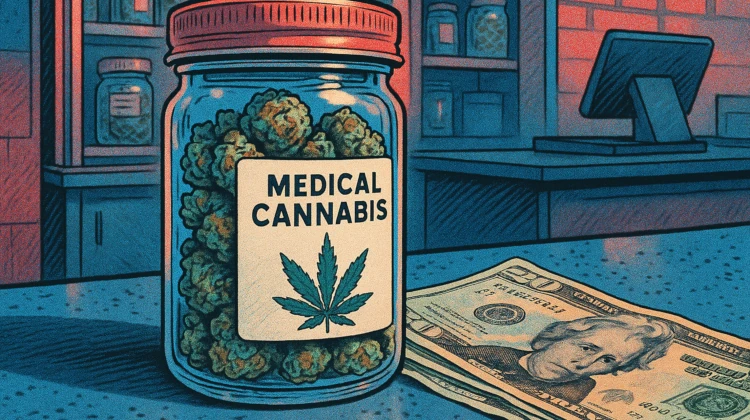
The cost of cannabis varies substantially from place to place, and insurance isn't likely to help even if you have a valid med card. Depending on the type of product, the taxes imposed by the state, and the quality, the price you pay may be as little as $5 (as in the case of a pre-roll joint or a single serve edible) or as high as $400 (for a high-quality ounce).
Many traditional economic factors affect the price of marijuana throughout the country. For example, local supply, taxes, and government regulations can raise or lower costs, depending on the circumstances.
Medical cannabis also comes in various forms, such as edibles, flower, concentrates, tinctures, and more. The type of products you choose will affect the amount you'll have to pay.
Here are the typical price ranges you'll find for each of these medical marijuana products.
- Marijuana Concentrates. Medical cannabis comes in several different concentrated forms, such as oil, wax, hash, etc. These products contain significantly higher concentrations of THC and, thus, are typically more expensive. Most dispensaries will sell cannabis concentrates in one or two-gram quantities. The going rate is usually $20-$80+ per gram, with higher quality extracts like live rosin topping $100 per gram.
- Marijuana Edibles. Most people are familiar with edible marijuana brownies, but edibles come in many different forms. Virtually any food product can be infused with medicinal cannabis. While particular foodstuffs may differ in price, edibles typically are priced based on individual dosages of THC. Edible product prices are usually based on dosages, which should be labeled on the package. The going rate for cannabis edibles with 100mg of THC is $10-$25+.
- Cannabis Tinctures & Sublinguals. Medical marijuana is now frequently sold as tinctures and sublingual products. The most common product of this type is concentrated liquid cannabis, generally sold in one-ounce glass dropper bottles. This form of medical marijuana can easily be mixed into food or drink and is ideal for people who cannot or don't want to smoke. Nevertheless, cannabis tinctures can be a little pricey depending on the brand and your location. Typically, tinctures sell for around $35 - $80+, with some products including 1000mg or more of cannabinoids.
- Marijuana Flower. The classic and conventional marijuana product – and the one all other products are born from – is cannabis flower. You can buy flower at dispensaries by the gram, in eighths, or by the ounce for around $5 - $20+ per gram.
We don't recommend choosing your go-to method of consumption just based on price. Instead, discuss your product options with your evaluating physician or healthcare provider to help determine the most appropriate form of medical cannabis.
What Affects the Price of Medical Marijuana?
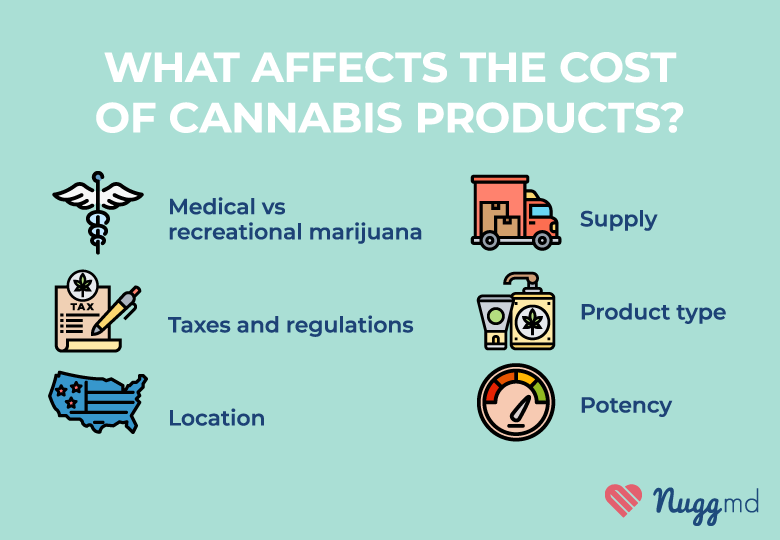
One of the most significant factors in the price of medical cannabis is the type of product you are looking to buy, as each has its own manufacturing process, lab tests, and – in some cases – additional ingredients.
However, other factors such as state taxes/regulations, quality, and location all play a role in how cheap, or expensive, medical cannabis can be.
Quality and Potency
Not all medical cannabis is created equal, unfortunately. You can purchase medicinal cannabis in low, medium, and higher qualities throughout the country. Things like flavor, scent profile, and how it was cultivated all play a role in determining the quality and grade (and cost) of cannabis.
The potency of medical cannabis is perhaps the primary and fundamental factor affecting its price, with higher THC flower often selling at a higher price, even if the quality is not necessarily the best.
State Taxes and Regulations
The taxes levied by the state or local municipalities can also significantly run up the price of medical marijuana.
Nevertheless, the impact of taxes on the price of medical cannabis products is almost always less so than on recreational cannabis, since most states impose smaller taxes, if any at all, on medical cannabis sales.
Find out how much you can save each year with a medical cannabis card:
Even so, any cannabis taxes – or sin tax – can affect the cost of medical marijuana.
Location
The location where the cannabis is being sold will also help determine its average price. In addition to the role local taxes play, there is the issue of supply and demand: the number of cannabis cultivators and dispensaries will vary substantially from place to place.
For example, KFF Health News reported that Montana experienced supply shortages following its legalization of recreational cannabis because of restrictions on the number of legal sellers. As is the case for any commodity, such shortages inevitably drive up the price.
However, this price mechanism can quickly go the other way, as is the case for Oregon, in which, according to Stateline, a massive surplus of cannabis has driven down the price to the lowest in the country.
Discounts and Incentives
Both recreational and medical cannabis dispensaries will periodically offer discounts or new customer incentives to lure more business. These could potentially lower the cost you need to pay for your medical cannabis.
Such discounts and incentives can vary widely, and may not be consistent offers on which consumers can rely. As such, this is one of the least significant factors that will determine the average price of medical marijuana in a region.
Product Type
Finally, the price of medical marijuana will differ based on the form you buy it in. Cannabis concentrates tend to be significantly pricier than something like a joint or even a gram of high-quality flower.
Recreational vs Medical Marijuana: Cost
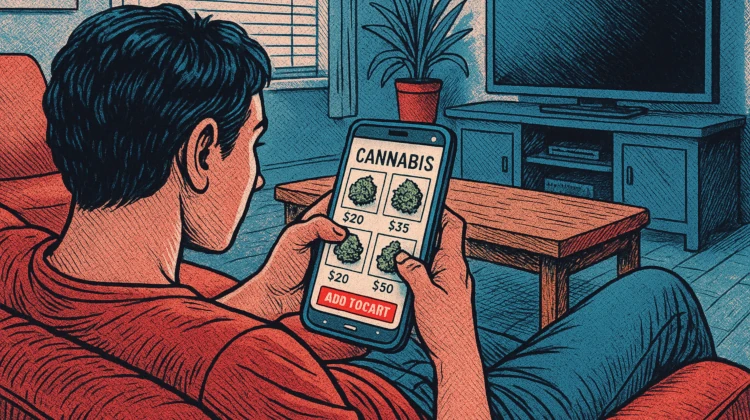
Recreational and medical cannabis products may not differ substantially in terms of quality. However, state and local taxes can have a major impact on the cost consumers pay for each type of cannabis product.
While a political sticking point for medical legalization was the potential benefits to patients across the country, many state legislatures became more favorable to recreational legalization after seeing the massive tax revenues it could generate for the state. How massive? Marijuana Moment reported that in 2021 alone, states raked in $3.7 billion from recreational sales.
So it should be no surprise that these states sometimes impose heavy taxes on recreational sales, driving the price.
On the other hand, medical patients may pay very little in terms of sales or excise taxes on their cannabis purchases, saving them a significant amount of money in the long run.
Cost of Medical Marijuana by State and Territory
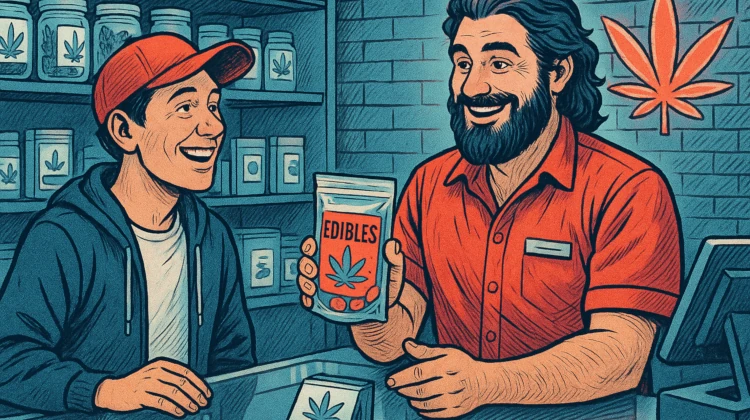
The price of cannabis isn’t consistent from one local to the next, nor does every state recognize out-of-state medical marijuana cards.
The states that have legalized medical and/or recreational marijuana each have different taxes, fees, regulations, number of suppliers, and distribution facilities that all affect the market price of medical marijuana.
The Federation of Tax Administrators (FTA) compiled a list of current state-by-state cannabis taxes that you can use to give you a better idea of the prices in your local area.
To make things simpler, here is the average cost of one ounce of high-quality marijuana by US state and territory:
1. Alabama - $343
2. Alaska - $298
3. Arizona - $297
4. Arkansas - $331
5. California - $257
6. Colorado - $242
7. Connecticut - $333
8. Delaware - $340
9. Florida- $299
10. Georgia- $318
11. Hawaii - $314
12. Idaho - $274
13. Illinois -$354
14. Indiana - $333
15. Iowa - $363
16. Kansas - $344
17. Kentucky - $339
18. Louisiana - $359
19. Maine - $288
20. Maryland - $361
21. Massachusetts - $341
22. Michigan - $290
23. Minnesota - $280
24. Mississippi - $349
25. Missouri - $355
26. Montana - $269
27. Nebraska - $309
28. Nevada - $270
29. New Hampshire - $335
30. New Jersey - $344
31. New Mexico - $284
32. New York - $337
33. North Carolina - $342
34. North Dakota- $384
35. Ohio - $330
36. Oklahoma - $345
37. Oregon - $211
38. Pennsylvania - $358
39. Rhode Island - $308
40. South Carolina - $336
41. South Dakota - $351
42. Tennessee - $345
43. Texas - $325
44. Utah - $281
45. Vermont - $346
46. Virginia - $365
47. Washington - $233
48. West Virginia - $363
49. Wisconsin - $344
50. Wyoming - $318
US Territories:
- District of Columbia - $598
| National average price | $326 |
| State/territory with the lowest cost | Oregon - $211 |
| State/territory with the highest cost | District of Columbia - $598 |
These prices listed were effective as of Jun 13, 2024.
Conclusion
Where recreational cannabis is available, states often impose hefty fees and taxes on their sales to adult-use consumers and lower or no taxes on products available to medical cannabis patients.
As a result, receiving or renewing a medical marijuana card still has its benefits and can quickly pay for itself after only a couple visits to the dispensary.
Don’t have your MMJ card yet? Get started today with NuggMD.
The information in this article and any included images or charts are for educational purposes only. This information is neither a substitute for, nor does it replace, professional legal advice or medical advice, diagnosis, or treatment. If you have any concerns or questions about laws, regulations, or your health, you should always consult with an attorney, physician or other licensed professional.

